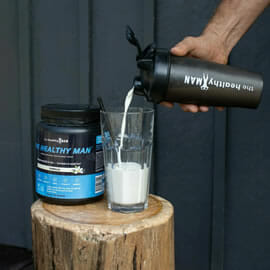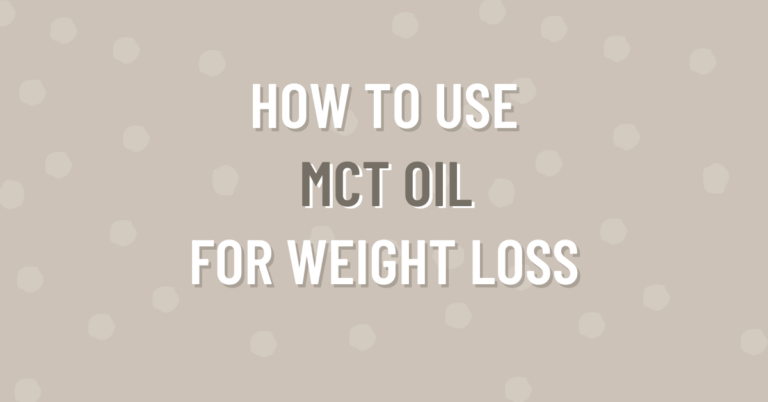Ways To Lose Water Weight

Have you been wondering how to lose water weight? If you’re overweight, it can be frustrating to look down at the scale and see extra kilos sitting there. The truth is that water weight may not be what you think it is, and if you’re trying to lose weight, it helps to know the difference between fat and water weight so that you can better understand what’s happening with your body.
Mosh connects you with AHPRA-registered doctors in Australia through our online platform. Whether you are curious about how much weight can I lose in a week or how to intermittent fast for weight loss, you can receive medically-backed advice on weight loss from an Aussie health professional without having to leave your house.
What are the common steps to lose weight?
There are several approaches to consider when trying to slim down. From changes in diet to an increase in physical activity, you can explore different methods to reduce water retention and find out what works best for you.
Food and diet
The first step to help you lose weight is to change your diet and be in a calorie deficit. By watching your daily caloric intake, your body can burn through its fat storage. However, being on a diet doesn’t just mean eating less food. It also means eating less food that is high in calories and fat and eating more food that is low in calories but high in nutrients. You can do this by reducing the number of convenience foods you eat, increasing your intake of fruits and vegetables, and eating lean meats such as chicken and fish.
Exercise
The next step is to exercise. You don’t have to become a gym rat, but you should aim to incorporate more physical activities into your daily routine. This could be as simple as taking a walk around your neighbourhood or moving furniture around your house to clean.
The important thing is to find a physical activity you enjoy doing and do it regularly. Once you have a good routine set up, you can gradually build up to doing more frequent and more strenuous exercises.
Evidence-based treatments
We know that losing weight can be challenging, and we want to help you meet your goal safely and sustainably. After a Mosh health practitioner evaluates your situation and assesses what’s right for you, we can assist your weight loss journey by providing you with whatever medical, over-the-counter, or coaching solutions are necessary, from weight loss shakes to dieticians to help personalise your diet. This way, you won’t just learn ways to lose water weight safely but how to maintain your body weight and overall health.
What is water weight?
In contrast to muscle mass and body fat, water weight refers to the weight of excess water stored in the body through its natural water retention processes. It is because of water weight that a person’s weight fluctuates by a few kilos in a single day.[1]
What causes water retention and bloating?
Before we talk about how to lose water weight, let’s talk about why it exists in the first place. Water retention and bloating are common symptoms that can be caused by a variety of conditions. Some of the most common causes include dietary choices, medical conditions, and medications.
Dietary choices can play a role in water retention and bloating. Eating too much salt or sugary foods can cause the body to retain more water, leading to uncomfortable bloating.
A study found that too much salt intake makes your body retain water and causes you to drink less.[2] Consuming high levels of carbohydrates will also cause you to experience fluid retention. Our bodies store the excess energy from carbs as glycogen molecules which are bound to water (note this is different from fat storage).[3]
Certain medical conditions can also cause water retention and bloating. Kidney or liver diseases, as well as heart failure, can all cause these symptoms. Additionally, certain medications, such as non-steroidal anti-inflammatory drugs (NSAIDs), can also lead to fluid retention.[4]
If water retention and bloating in your belly persists or worsens over time, don’t just rely on information about how to shed water weight from the internet. Connect with a healthy practitioner online at Mosh to get science-backed advice on your situation and treatment options, if necessary.
Is it possible to lose water weight naturally overnight?
Fortunately, it is possible once you follow these tips on how to drop water weight. A number of methods exist that can help get rid of excess water weight quickly and effectively. These include drinking plenty of fluids, increasing physical activity, and getting enough sleep.
Exercise is a great way to get rid of water weight. It helps flush out excess water by burning through glycogen storage before eventually targeting fat storage. This can help you shed kilos quickly when you first start losing weight.[5]
Drinking more water can actually make it less likely that you will retain excess water weight. This may sound paradoxical, but that’s because by becoming better hydrated, your body will not have to store excess water as a defence mechanism against dehydration.[6]
Maintaining a healthy sleep schedule can also support water weight loss. A study found that a difference of just two hours of sleep in adults from eight down to six hours led to a significant rise in their risk of being dehydrated, which leads to water retention.[7]
If dietary or lifestyle changes don’t help reduce inflammation, speak with a doctor. Water retention may be a symptom of a serious condition.https://www.healthline.com/nutrition/6-ways-to-reduce-water-retention
How does water weight affect the body and how do I avoid it?
Water weight can be particularly noticeable in the form of bloating, puffiness, and swelling in certain areas of the body. This can cause pain and also lead to the joints feeling stiff. It is frequently followed by a rapid increase in weight over a short period of time, typically for a few days to a few weeks.[8]
As we’ve mentioned, managing your intake of salt and carbs, staying hydrated, and exercising regularly are all good practices when learning how to lose water weight. However, despite these measures, excessive water retention can sometimes persist. This could be a sign of a number of things, including kidney, heart, or liver diseases.
In these cases, it’s important to get in touch with a health professional who can help you manage your symptoms and find relief. All bodies are different, and your water weight can be influenced by many factors, including your genes, gender, food habits, fitness level, and other medications. This is why at Mosh, we have a weight loss quiz that takes as many of these factors into account as possible.
Once you have submitted your results, you can consult with a Mosh health practitioner online to get advice on anything from managing your sodium intake to ways to reduce water retention . If you have specific goals or questions, related to weight gain or reduce excess fluid retention you can ask your health practitioner about that, too.
Mosh offers a variety of services related to weight management, hair loss, mental health, sexual health, and skincare, among others. We work with health practitioners in Australia who are available for consultation, and they can provide you with guidance on a variety of health concerns supported by scientific evidence.
FAQs
What are some common causes of water weight?
Some common causes of water weight include excess sodium intake, consumption of processed or unhealthy foods, fluid retention, and certain health conditions.
How can I reduce water weight safely?
To reduce water weight safely, you can focus on drinking more water, consuming natural diuretics like potassium-rich foods, and minimising your sodium intake.
Can drinking more water help reduce water retention?
Yes, increasing your water intake can actually help reduce water retention as it flushes out excess fluid from your body.
What role does potassium play in reducing water weight?
Potassium acts as a natural diuretic, helping your body eliminate excess sodium and water, thereby reducing water weight.
Are there any simple ways to reduce water weight fast?
Yes, incorporating more diuretic foods, staying hydrated, and cutting back on salty foods may help you lose water weight quickly.
How do processed foods contribute to water weight gain?
Processed foods are often high in sodium, which can lead to water retention and an increase in water weight.
What are some natural diuretics that may help reduce water retention?
While certain herbs like dandelion or ginger may act as diuretics, flushing out excess water and sodium, talk to your doctor before taking any herbs or supplements that may have diuretic effects.

Mosh - Proven weight loss programs
If your weight isn’t quite where you thought it’d be, you’re not alone.
But it’s never too late to reap the benefits of weight loss, which include reducing a range of health risks. Mosh weight loss programs are:
✅ Easy to follow
✅ Evidence-based
✅ Personalised to you by health professionals & dietitians
Get started with a quick quiz.
References
[1] https://www.medicalnewstoday.com/articles/320603
[2] https://www.jci.org/articles/view/88530/pdf
[3] https://www.medicalnewstoday.com/articles/320603#risk-factors
[4] https://www.betterhealth.vic.gov.au/health/conditionsandtreatments/
[5] https://pubmed.ncbi.nlm.nih.gov/1615908/
[6] https://www.medicalnewstoday.com/articles/320603#ways-to-lose-water-weight
[7] https://academic.oup.com/sleep/article/42/2/zsy210/5155420
[8] https://www.betterhealth.vic.gov.au/health/conditionsandtreatments/





